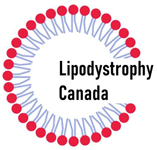Testing and Treatment
TESTING:
Diagnosing lipodystrophy involves a combination of clinical evaluation, physical examination, and sometimes additional tests. Here are the key steps in diagnosing this condition:
- Clinical History and Physical Examination:
- Loss of Body Fat: The diagnosis is primarily based on physical examination findings, including the loss of body fat in specific areas.
- Genetic Testing (for Genetic Forms):
- Screening for Associated Conditions:
1 link.springer.com
2 link.springer.com
3 my.clevelandclinic.org
4 academic.oup.com
5 dermnetnz.org
TREATMENT:
While there’s no cure for the condition, certain treatments can help manage its symptoms and associated health conditions. Let’s explore the available treatment options:
- Medical Management of Metabolic disease:
Medical management of lipodystrophy is critical in managing symptoms. This includes medication to treat underlying conditions such as insulin resistance, diabetes, dyslipidemia and hypercholesteremia.
- Leptin Replacement Therapy:
- Leptin, a hormone produced by adipose tissue, plays a crucial role in regulating metabolism and hunger. In some cases of lipodystrophy, leptin replacement therapy using human recombinant leptin (metreleptin) has been effective. It helps alleviate metabolic complications associated with lipodystrophy.
- Leptin replacement therapy has been approved by the FDA for the treatment of generalized lipodystrophy syndromes13. It is currently being approved in Canada for use in both partial and generalized lipodystrophy.
- Lifestyle Modifications:
- Dietary Changes: Adjusting your diet to promote overall health and manage metabolic complications.
- Regular Exercise: Building muscle and reducing abdominal fat through physical activity.
- Mental Health Support
This disease not only impacts our quality of life (medical management, pain, weakness etc.), it can lead to significant changes in the way our body looks. Support for your mental health is critical for the management of lipodystrophy.
There are various types of mental health help available to support individuals experiencing mental health conditions. Here are some common approaches:
- Psychotherapy or Counseling:
- Also known as talk therapy, this involves talking to a trained mental health professional. It helps explore thoughts, emotions, and behaviors, and provides coping strategies.
- Prescription Medicine:
- Medications prescribed by a doctor can help manage symptoms of mental health disorders. These may include antidepressants, antianxiety medications, mood stabilizers, and antipsychotics.
- Support Groups:
- Self-help and support groups allow individuals to connect with others facing similar challenges. Sharing experiences and coping strategies can be beneficial.
- Alternative Therapies:
- Various complementary approaches, such as mindfulness, meditation, yoga, and art therapy, can contribute to mental well-being.
- Community Support Services:
- Community resources, outreach programs, and social services provide practical assistance and emotional support.
- Surgical Interventions:
Some patients might seek out surgical options to minimize the effects lipodystrophy can have on body fat distribution. Options include:
- Liposuction: Surgical removal of excess fat from specific areas.
- Injectable Facial Fillers: Used to treat facial fat loss.
- my.clevelandclinic.org
- mayoclinic.org
- medicalnewstoday.com
